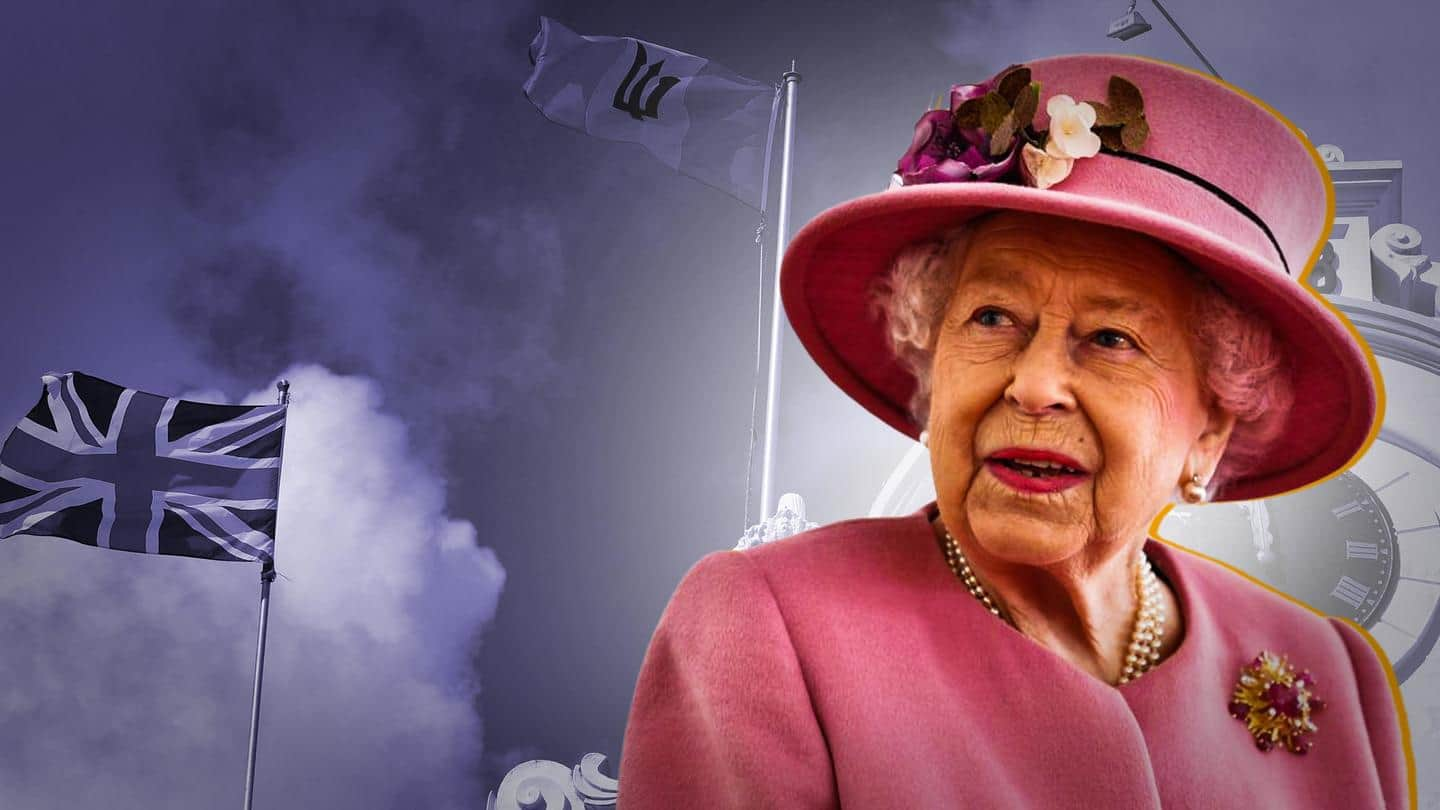
Barbados removes Queen Elizabeth as head of state; becomes republic
What's the story
Barbados has become a republic, replacing British Queen Elizabeth II as the head of state.
The step marks an end to its last remaining bonds to its colonial history.
The republic was born with Dame Sandra Prunella Mason swearing in as its first-ever president at a midnight ceremony.
Charles, the Prince of Wales, and Barbadian pop singer Rihanna attended the event.
Context
Why does it matter?
Barbados is only the first former British colony to remove Queen Elizabeth II as head of state since 1992 when Mauritius became a republic.
The move may lead to similar proposals by other former colonies where the Queen remains sovereign, including Australia, Canada, Jamaica, and the United Kingdom.
The latest announcement came on the 55th anniversary of Barbados' independence.
Details
Prince Charles acknowledges atrocities of slave trade
Prince Charles, next in line to the throne, represented the Crown at the ceremony as Barbados declared itself a republic.
The Queen has been having some health concerns lately.
"From the darkest days of our past, and the appalling atrocity of slavery, which forever stains our history, the people of this island forged their path with extraordinary fortitude," he said at the ceremony.
Queen
Queen congratulates Barbadians, President Mason
A statement from the Queen congratulated President Mason's ascension.
The Queen also wished happiness, peace, and prosperity to all Barbadians in the future.
Recalling her first visit to Barbados in 1966, she said, "Barbados has held a special place in my heart."
"...I look forward to the continuation of the friendship between our two countries and peoples," she said.
Quote
Barbados to remain within Commonwealth
The Queen expressed "great satisfaction" at the fact that Barbados will remain a republic within the Commonwealth—a grouping of 54 nations most of which were part of the British Empire. Commonwealth nations are spread across Africa, Asia, the Americas, and Europe, and notably include India.
Celebrations
Barbadians celebrates end of colonialism
Hundreds of Barbadians lined the Chamberlain Bridge in the capital, Bridgetown, cheering for the new republic.
A 21-gun salute was reportedly fired at the crowded Heroes Square as Barbados' national anthem played.
The lavish official ceremony also witnessed the glaring display of Barbadian dance and music.
Further, Barbadian singer Rihanna was declared a national hero by Prime Minister Mia Mottley.
Quote
We must shape Barbados' future: Mason
"We the people must give Republic Barbados its spirit and its substance," President Mason said at the ceremony, adding, "We must shape its future. We are each other's and our nation's keepers. We, the people, are Barbados."
Reactions
Activists demand compensation from Britain
Even though Prince Charles acknowledged slave trade as a "sin," Barbadian activists demanded compensation from the Crown.
Activist David Denny told Reuters that while he celebrated the creation of the republic, he opposed the presence of Prince Charles.
"Our movement would also like the Royal Family to pay a reparation," Denny said, noting that the Royal Family benefited from centuries of slave trade.
Slavery
What's the slave history of Barbados?
Initially, the British used indentured white servants to work on the plantations of tobacco, cotton, indigo, and sugar in Barbados.
However, between 1627 and 1833, roughly 6,00,000 African people were brought to Barbados as part of the transatlantic slave trade.
Those who survived the grueling journey were made to work at plantations and forced to earn fortunes for English owners.